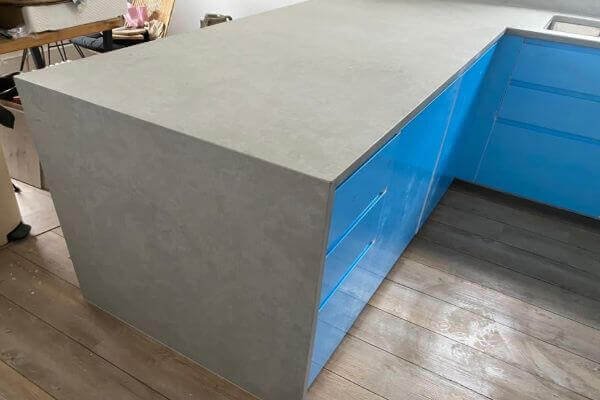Are you considering quartz worktops for your home but wondering if they are environmentally friendly? Let’s dive into the facts and find out! Quartz worktops have gained popularity in recent years, but understanding their impact on the environment is crucial.
From the mining process to manufacturing and disposal, we’ll explore every aspect to determine if quartz worktops align with your sustainable lifestyle. So, hold tight as we unravel the truth behind this trendy worktop option!
Quartz worktops are known for being durable and low maintenance. When it comes to the sustainability of quartz worktops, you may wonder if they are environmentally friendly. The good news is that quartz worktops are indeed sustainable. They are made from one of the most abundant minerals on earth, which means that their production does not lead to excessive resource depletion.
Unlike other worktop materials, quartz does not require frequent sealing or chemical treatments, reducing the environmental impact in terms of water consumption and harmful chemicals. Additionally, quartz worktops can be recycled, making them a greener choice for your kitchen or bathroom renovation projects. So yes, when it comes to sustainability and being environmentally friendly, quartz worktops tick all the right boxes.

Did you know where the material for these popular kitchen surfaces comes from? Quartz, the key component of quartz worktops, is a mineral that is abundant in the Earth’s crust. It is mined from quarries around the world, with major producers including Brazil, China, and India.
The process begins with extracting large blocks of quartz from the ground and then cutting them into slabs. These slabs are then polished to create the smooth and glossy surface we see in our kitchens.
As for sustainability, quartz is considered a sustainable choice because it is a naturally occurring mineral and does not require extensive mining or manufacturing processes like other worktop materials.
Additionally, quartz worktops are highly durable and long-lasting, reducing the need for frequent replacements, which further contributes to their sustainability.
Quartz worktops are often praised for their durability and low maintenance however there is some consequence in the process of extracting quartz.
To give you a clearer picture, here’s a table outlining some of the environmental impacts associated with quartz mining:
| Environmental Impact | Description |
|---|---|
| Land Clearance | Large-scale removal of vegetation and habitat loss |
| Energy Consumption | High energy requirements during the extraction process |
| Carbon Emissions | Increased greenhouse gas emissions |
| Water Pollution | Contamination of local water sources |
It is important to consider these factors when evaluating the overall environmental friendliness of quartz worktops. However, there are better practices for Quartz mining below.
When it comes to manufacturing processes, it’s important to consider the sustainability of materials and methods used. In the case of quartz worktops, several factors contribute to their environmental friendliness:
Recycled quartz is a sustainable choice for those seeking environmentally-conscious materials. By opting for recycled quartz worktops, you can contribute to reducing waste and minimising your carbon footprint. Not only are you making an eco-friendly decision, but you’re also choosing a durable and stylish option for your home.
Let’s take a look at the benefits of recycled quartz in comparison to other worktop materials:
|
Recycled Quartz |
Granite | Marble | |
|---|---|---|---|
| Sustainable | Yes | No | No |
| Durable | Yes | Yes | Yes |
| Stylish | Yes | Yes | Yes |
As you can see from the table above, recycled quartz outshines granite and marble when it comes to sustainability. It is made from post-consumer recycled materials, meaning that it helps reduce landfill waste. Additionally, it still offers the durability and aesthetic appeal that other natural stones provide.

Take a moment to consider the energy efficiency of producing quartz worktops. When it comes to environmental impact, every little detail matters. Here are some key points to keep in mind:
Energy consumption: Quartz worktop production requires less energy compared to other materials like granite or marble.
Reduced carbon footprint: The manufacturing process for quartz worktops emits fewer greenhouse gases, contributing to a cleaner environment.
Water conservation: Unlike natural stone options, quartz worktops don’t require excessive amounts of water during production.
Waste reduction: The production of quartz worktops minimises waste by utilising recycled materials and byproducts.
Longevity: Quartz worktops have a longer lifespan compared to other materials, reducing the need for replacements and further resource consumption.
Now that you understand the energy efficiency of quartz worktop production, let’s talk about maintenance and sustainability. When it comes to maintaining your quartz worktops, you’ll be pleased to know that they are incredibly easy to take care of. Unlike natural stone worktops, quartz doesn’t require sealing or special cleaners. All you need is mild soap and water for everyday cleaning.
In terms of sustainability, quartz worktops have a lot going for them. They are made from one of the most abundant minerals on Earth – quartzite – which means no rare or endangered materials are used in their production. Additionally, many manufacturers are committed to sustainable practices such as recycling water and using eco-friendly binders during fabrication.
When it’s time to dispose of your quartz worktops, you’ll be glad to know that they can be easily recycled. Unlike other worktop materials, such as granite or marble, quartz is not only durable and low-maintenance but also environmentally friendly. Here are five reasons why recycling your quartz worktops is a great choice:
Did you know that compared to other worktop materials like granite or marble, quartz is not only durable and low-maintenance but also a more eco-friendly option?
Quartz worktops are made from one of the hardest minerals on Earth and are engineered using a combination of natural quartz crystals and resin binders. Unlike granite or marble, which require mining and cutting large slabs from quarries, quartz worktops are made by combining crushed quartz with resin to form slabs.
This process reduces the need for quarrying and helps conserve natural resources. Additionally, because quartz worktops are non-porous, they do not require sealing like granite or marble, which often involves the use of chemicals that can harm the environment. So if you’re looking for a stylish yet environmentally-friendly worktop option, quartz is worth considering!

If you’re interested in sustainable quartz worktops, look for certifications and labels that indicate their eco-friendly production methods. These certifications ensure that the worktops are made with minimal environmental impact and adhere to strict sustainability standards. Here are five important certifications and labels to look out for:
GreenGuard: This certification ensures that the worktop has low emissions of volatile organic compounds (VOCs), promoting better indoor air quality.
NSF/ANSI 51: This label indicates that the worktop is safe for food contact, making it a great choice for kitchens.
SCS Global Services: Look for this certification to ensure that the quartz used in your worktops is responsibly sourced and does not contribute to deforestation or habitat destruction.
Cradle to Cradle Certified: This label guarantees that the worktop is designed with a circular economy approach, meaning it can be recycled or upcycled at the end of its life.
LEED Certification: If you’re looking to make your home more sustainable overall, choose a quartz worktop with LEED certification, which considers factors like material sourcing, energy efficiency, and waste reduction.
The answer is yes, it can be! Quartz worktops are a sustainable choice due to their low-impact mining and manufacturing processes. Did you know that approximately 94% of quartz is mined from post-industrial recycled sources? This means that choosing quartz worktops can help reduce the demand for new materials and contribute to a greener future. So, go ahead and make the eco-conscious choice with quartz worktops for a beautiful and sustainable kitchen or bathroom upgrade!
Want to compare against other materials?
We’ve put together some useful guides on how quartz worktops compare with other popular materials:
Or do you want to know how to maintain and care for your worktop?
Find out more in our ultimate guide to quartz worktop care and maintenance.
Copyright © Topsco
Developed by TyMedia